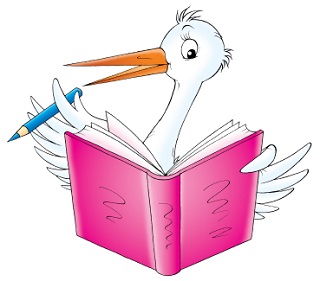 An analytical or critical review of a book is not essentially its summary. It is a description and an evaluation on the quality and significance of the book, in light of specific issues and theoretical concerns. It should focus on the book’s purpose, content, and authority. It is a work where the strengths and weaknesses of the book are analysed. When writing a review, some questions have to be kept in mind.
An analytical or critical review of a book is not essentially its summary. It is a description and an evaluation on the quality and significance of the book, in light of specific issues and theoretical concerns. It should focus on the book’s purpose, content, and authority. It is a work where the strengths and weaknesses of the book are analysed. When writing a review, some questions have to be kept in mind.
Main Questions to Ask
These are as follows:
- Is there a specific topic that the book deals with?
- Does it seem to have any overall purpose?
- For what readership is it written?
The preface, acknowledgements, bibliography and index is generally helpful in answering these questions. Do not overlook facts about the author’s background and the circumstances in which the book was created and published.
Also, think about asking:
- Does the author state an explicit thesis or a theme?
- What are the theoretical assumptions? Are they discussed explicitly?
- From what point of view is the work written?
- Why did the author write on this subject rather than on some other subject?
Again, look for statements in the preface, etc. and follow them up in the rest of the work.
The Genre and Material
- Is there a genre that the book can be categorised into?
- How does the book fit into it?
What types of material does the work present itself as (e.g. primary documents, literary analysis, personal observation, biographical or historical accounts).
The Author’s Style
- What is the style of the author?
- Does he/she have a formal or an informal approach?
Evaluate the quality of the writing style and tone by using some of the following standards: clarity, originality, correct use of technical words, conciseness, fullness of development, fluidity.
The Audience/ Readers
- Does it suit the intended audience?
- What do you like or dislike about the book’s writing style?
- Is the book readable as well as technically accurate? Is the language stilted, or natural?
- Are the examples easy to follow?
- How well is the book organized?
Materials and Sources
- Are there other ways to argue from the same material?
- Does the author show awareness of them?
- In what respects does the author agree or disagree?
- What theoretical issues and topics for further discussion does the work raise?
The Affect of the Book on You
- Did the book affect you at all?
- If it did, then how did you cope with it?
- Did you have any preconceived notions of the topic?
- Did it change after you read this book?
- How is the book related to your own personal agenda?
- What are your own reactions and considered opinions regarding the work?
- How well has the book achieved its goal?
- Would you recommend this book to others, and why?
The above mentioned questions will help in structuring the way you want your review to take shape. What it can also do is to open a new insight into the book that you are writing on. So keep them in mind and go ahead writing reviews on your favourite books.
 First, let’s be clear about something. Teens are those budding youngsters above the age of 12 and below the age of 20. As you can see, this is indeed a wide range, and books written for someone who is twelve will certainly differ from books written for those at eighteen. Though different maturity levels require books on a different subject matter, all you need to know is that books for teens should be well written and about intriguing topics. There are a few tips you can keep in mind while
First, let’s be clear about something. Teens are those budding youngsters above the age of 12 and below the age of 20. As you can see, this is indeed a wide range, and books written for someone who is twelve will certainly differ from books written for those at eighteen. Though different maturity levels require books on a different subject matter, all you need to know is that books for teens should be well written and about intriguing topics. There are a few tips you can keep in mind while 